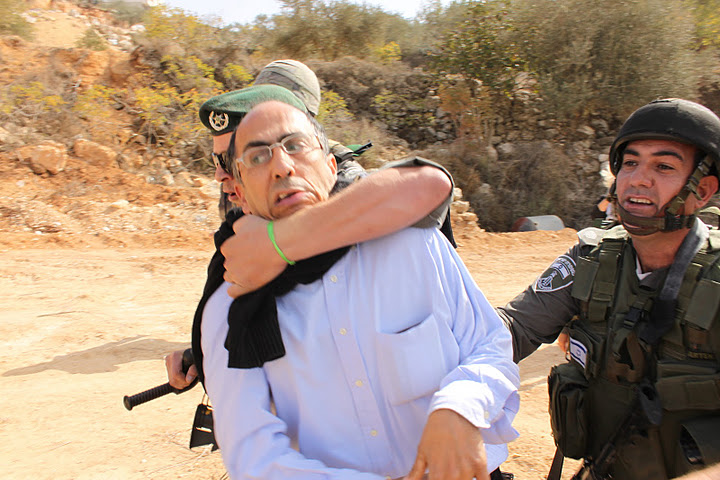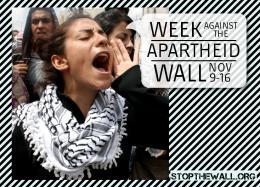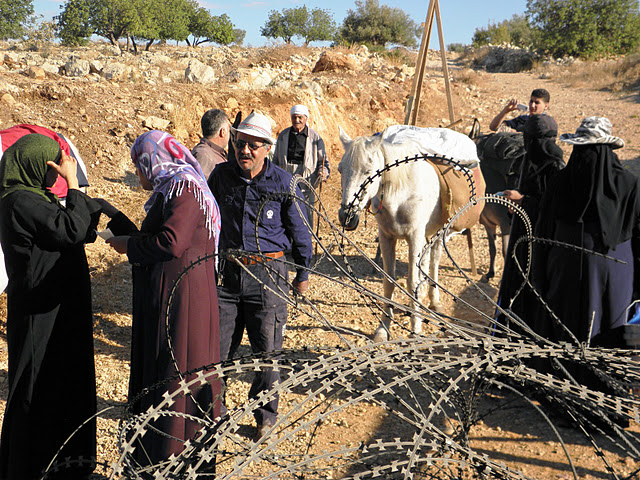Tag: Apartheid Wall
-
Jerusalem: Explosions, arrests and violence as Israel clears way for settlement activity
by Alistair George 13 November 2011 | International Solidarity Movement, West Bank Three Palestinians were arrested and others were detained, beaten and pepper sprayed by the Israeli military in Al-Walajeh yesterday, as villagers attempted to prevent the detonation of explosives used to widen the route for the separation wall on the village’s land. Previously, large…
-
Global week of action against Israel’s wall in the West Bank
by Nora Barrows-Friedman 9 November 2011 | The Electronic Intifada Since the beginning stages of Israel’s implementation and continued construction of its illegal wall in the occupied West Bank nearly ten years ago — and compounded with the International Court of Justice’s (ICJ) ruling in 2004 that the wall is in violation of several international…
-
Nil’in: The solitary confinement of olive trees
by Aida Gerard 31 October 2011 | International Solidarity Movement, West Bank The selective Israeli permission system prevents many families from Nil’in from reaching their land behind the wall to pick their own olives as the olive harvest season nears its end. The families who received permissions have until the 10th November to pick their…



